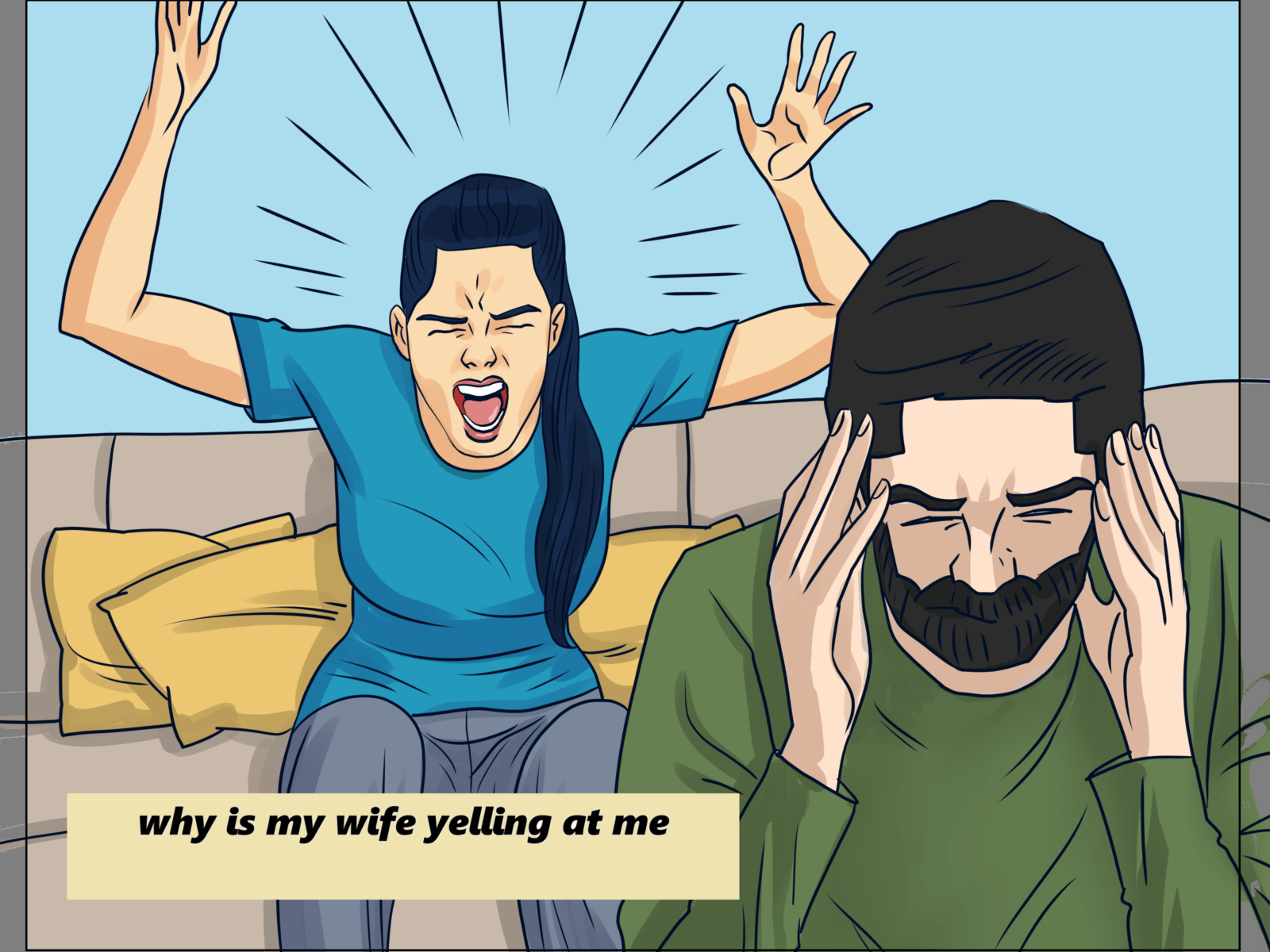Why Is My Wife Yelling at Me – If your wife is yelling at you, it can feel overwhelming and confusing. While yelling is often a sign of deeper frustrations or emotions, understanding the reasons behind it and addressing the issue constructively can strengthen your relationship.
Common Reasons Why Your Wife Might Yell
- Feeling Overwhelmed
- Balancing responsibilities such as work, household chores, parenting, or personal issues can be stressful. Yelling might be her way of releasing pent-up tension.
- Unmet Emotional Needs
- She may feel unappreciated, unheard, or unsupported. When emotions build up, they can sometimes come out as anger or raised voices.
- Frustration with Communication
- If she feels like her concerns aren’t being acknowledged, yelling might become her way of ensuring she is heard.
- Unresolved Issues
- Past conflicts or unresolved disagreements can linger and resurface, leading to emotional outbursts.
- Personality or Stress Responses
- Some individuals are naturally more expressive or reactive, especially during moments of high stress or frustration.
- Learned Behavior
- If she grew up in an environment where yelling was common, it might be her default way of expressing anger or frustration.
How Yelling Affects Your Relationship
Yelling can impact a relationship in several ways:
- Emotional Strain: It can create feelings of hurt, resentment, or fear.
- Miscommunication: The real message can get lost in the intensity of the argument.
- Erosion of Trust: Frequent yelling may lead to emotional distance over time.
How to Address the Situation
1. Stay Calm
- Reacting with anger or yelling back will likely escalate the situation. Take deep breaths and remain composed.
2. Listen to Understand
- Focus on what she’s saying, not just how she’s saying it. Her yelling might be an expression of underlying needs or frustrations.
3. Acknowledge Her Feelings
- Validate her emotions by saying things like, “I understand you’re upset,” or “I see that this is important to you.” This can help diffuse tension.
4. Reflect on Your Actions
- Consider whether something you did or didn’t do might have contributed to her frustration. A willingness to self-reflect can improve communication.
5. Choose the Right Time to Talk
- Once emotions have cooled, initiate a calm conversation. Say something like, “I’d like to talk about what happened earlier so we can work through it together.”
6. Suggest Healthier Communication
- Encourage both of you to express emotions without raising voices. This might involve taking breaks during arguments or setting boundaries for conflict resolution.
7. Seek Support if Needed
- If yelling becomes frequent or harmful, consider couples therapy. A counselor can help both of you understand underlying issues and develop better communication skills.
When Yelling Becomes a Concern
While occasional yelling can be a normal expression of frustration, it’s important to recognize when it crosses a line into unhealthy or abusive behavior. Warning signs include:
- Verbal Abuse: Name-calling, insults, or belittling.
- Control: Attempts to dominate or manipulate.
- Emotional Damage: Yelling that leaves you feeling unsafe or deeply hurt.
In such cases, it’s essential to prioritize your well-being and seek professional advice.
Building a Stronger Connection
Relationships require patience, understanding, and effort from both partners. If your wife is yelling, it’s an opportunity to work together on improving communication and resolving underlying issues. By fostering empathy and addressing concerns constructively, you can create a healthier, more supportive partnership.











Leave a Reply